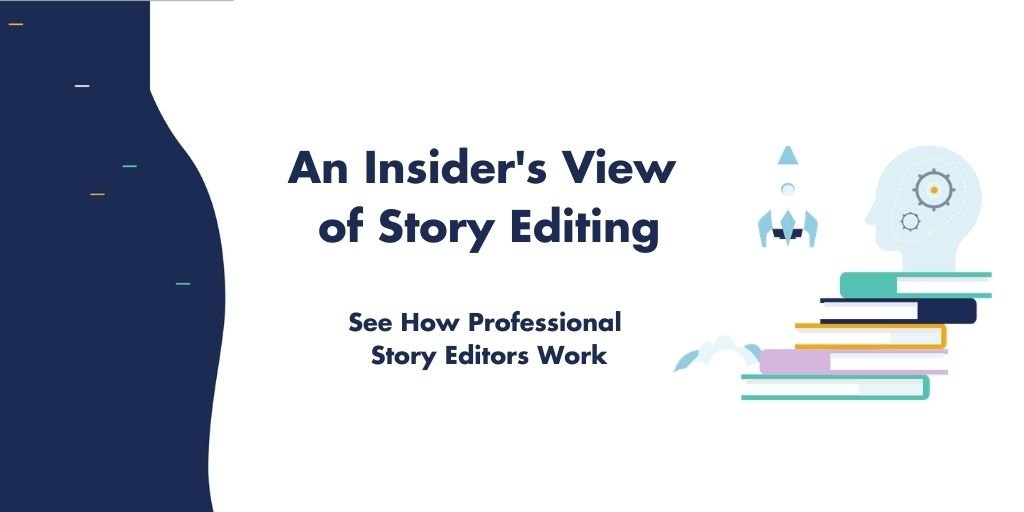As story editors (structural book editing of fiction), it’s our job to point out what our author clients need to change to make their book better, right? Well, yes…and no.
Let’s talk about using kindness in our editing practises.
Life Lessons
We have been enjoying unseasonably warm and dry weather here on the West Coast of Canada. There is a small lake close to my house, and a friend and I meet there often to walk the 6 km loop around the lake. I told her the other day that I was going to write a blog on ‘kindness in book editing’, and she mentioned hearing the phrase, “Love and kindness connect us to a higher level of humanity.”
Mic drop. End of blog.
Well, not really, but it does ring true, doesn’t it? The people we admire most are often those with ‘kindness’ as one of their main attributes.
“I would rather make mistakes in kindness and compassion than work miracles in unkindness and hardness.”
― Mother Teresa
My walking buddy Joanne is one of the kindest people I know. I thought about why that is true of her, because she doesn’t always agree with me! But here’s the thing – she will always be authentic with me, and when she disagrees with something I’m going on about she will be gentle with me – but she will also question me and challenge me.
Book Editing Applications
We must be kind when we are book editing as well.
When we go into a working relationship with our authors, we need to remember the blood, sweat, and tears they have invested in the manuscript they have entrust to us. It would be oh-so-very-easy to grab that red marker and start the hunt for everything that isn’t working!
Because editing is a little like a treasure hunt, isn’t it? We do look for the things that don’t work, or are in the wrong place, or are misrepresented, or missing from the plot. “Aha! That hat in the cupboard never gets mentioned again, and we know the killer was wearing it!” So, we jot down, “Don’t forget to follow up with important objects!”
Now, writing “Don’t forget to follow up with important objects!” isn’t the worst thing you could say, but a manuscript full of one-line comments and imperative directions of “Fix this!” and “Move this!” can be a bit much. It will leave your author wondering if they did anything right.

And they have! They will have written many things well, and it is our job as editors to point those out too. What are they good at?
- Do they know their characters inside and out?
- Do they know how to describe the setting in a way that we feel like we are there?
- Do they have their story arc beats in the perfect place, with the right point of view character and the right amount of action and conflict?
- Do they write the tension into each scene is just the right way?
Then tell them!
Sometimes it takes only one act of kindness and caring to change a person’s life. –Jackie Chan
As an editor, the author is paying you to help them make their story shine. So, what are some ways we can help them do that?
Ideas to Consider when Book Editing
1.) Use nice words. I’d like to write that this goes without saying, but this isn’t always the case. As a writer yourself, you may be a “give it to me straight” kind of a person, but it is crucial to understand that most people feel very vulnerable handing you their created work. Be respectful. Be mindful. Be kind. Tanya Mykhaylychenko gives us some good ideas in her Editors Canada blog How to Offer Your Authors Positive Feedback.
2.) Communicate well. As I wrote in this blog, make sure you and your author are speaking the same language. Do they know what a story arc is, and why it is important to have the beats in the right place? Do they know what you mean by an entry hook or an exit hook? This will serve you well when trying to explain to your author that while each scene ends in a nicely wrapped-up conclusion, there was nothing to pull you on to the next scene.
3.) Explain yourself. Repeat after me, “This is not my story. I am not the author.” If you are asking an author to change something, you need to explain why. As Kristina Stanley says in her blog How to Become and Editor and Be Amazing, “You must ensure you don’t overly influence your client to write the story you want to write.” Remember, “I like it better this way” is NOT a good reason!
If your author used cliff hangers as their exit hook for every scene, you probably shouldn’t say, “Don’t use cliff hangers as the exit hook in every scene.” It is kind to explain why that gets boring after a while, and that cliff hangers are most effective when used sparingly (and that you want readers to be grabbed when the author does use them!) But remember point 1 – use nice words to do so.
4.) Make suggestions. This follows on the heels of ‘explain yourself’. If I write “I’d suggest moving this paragraph to the beginning of the scene – it would make a great entry hook!” it shows that I’m not telling them what to do. This is not my story; I am not the author. Everything we offer as editors should be suggestions, which the author may or may not choose to use for their manuscript. When we write that out in our comments, the author will see that we are respecting their creativity.
5.) Ask questions/Don’t assume. We all know we can’t read minds (if you can, I’d love to hear about it!), so don’t assume you understand why an author has done something in their writing. Ask – “Is there a reason why you had your protagonist stop to blow their nose in this scene? It interrupts the flow of the action, so consider having them do that at the beginning of the scene, (or do they need to do it at all?)” There may be a very good reason the protagonist blows their nose, so ask.
6.) Remember to point out what the author does well. I mentioned this earlier, but make sure you give kudos where kudos are due. Preface your, shall we say, ‘constructive criticism’ with positive feedback, and it will go down much easier. Don’t we all want to know what we do well? Then we know we have a base to build on. All negatives will have your author moving their manuscript to the trash and swearing they will never write another word, and that is NOT the goal of editing!
7.) Find your voice. In Find Your Editor’s Voice and Shine, Kristina Stanley writes about editors finding their voice. We hear a great deal in editing circles about respecting the author’s voice, but have you thought about the need to find your own voice as an editor? How do you speak (whether verbally or through your written commentary) with your clients? Are you someone they turn to for advice, someone they will happily recommend to their writer friends for the professional and kind story edit they received from you?

Ultimately, it’s our job as book editors to help the author make the story the best it can be, giving them a hand up from the knowledge we have gained as we have studied our craft. As you work, it’s always good to ask yourself, “Am I helping this author, in a kind way, to make their story shine?” That doesn’t mean we don’t suggest corrections, but it does mean we do it kindly, remembering to tell them what they do well along with what could be changed to benefit the story.
“Always try to be a little kinder than is necessary.” ― J M Barrie
Post Written by Kara Henderson
 I have a passion for story, and I love working with authors to help them make their manuscript the best version of the story they’ve created. Through Fictionary, I can help you know what you do well, and I will help you figure out what needs to be tweaked to allow your story/writing to be as good as it can be.
I have a passion for story, and I love working with authors to help them make their manuscript the best version of the story they’ve created. Through Fictionary, I can help you know what you do well, and I will help you figure out what needs to be tweaked to allow your story/writing to be as good as it can be.
You can reach me through the Fictionary online community, or at karatheeditor@gmail.com.
When do you ever get to see what a story editor delivers to a client if the client is not you?
Our course gives you an insider’s view of what happens in a story edit. This is similar to a structural or substantive edit for fiction.
Before you hire an editor or edit your own story, it’s important to understand what a story edit is.
Thirteen professional editors edited the same novel.
Each editor worked separately in Fictionary StoryCoach.
This course evaluates their edits and shows you what worked and what didn’t. We’ll show you two scenes before editing and after revisions based on the editors’ suggestions. We even compare the editors’ summary letters and per scene notes.
For writers looking to hire a professional story editor, this course shows you what you should receive from a story editor. It will also show you how an editor might look at your story.’
Sign up now for great value.
On sale for $39 USD. Use Coupon INSIDERSVIEW
Regular Price: $99.


